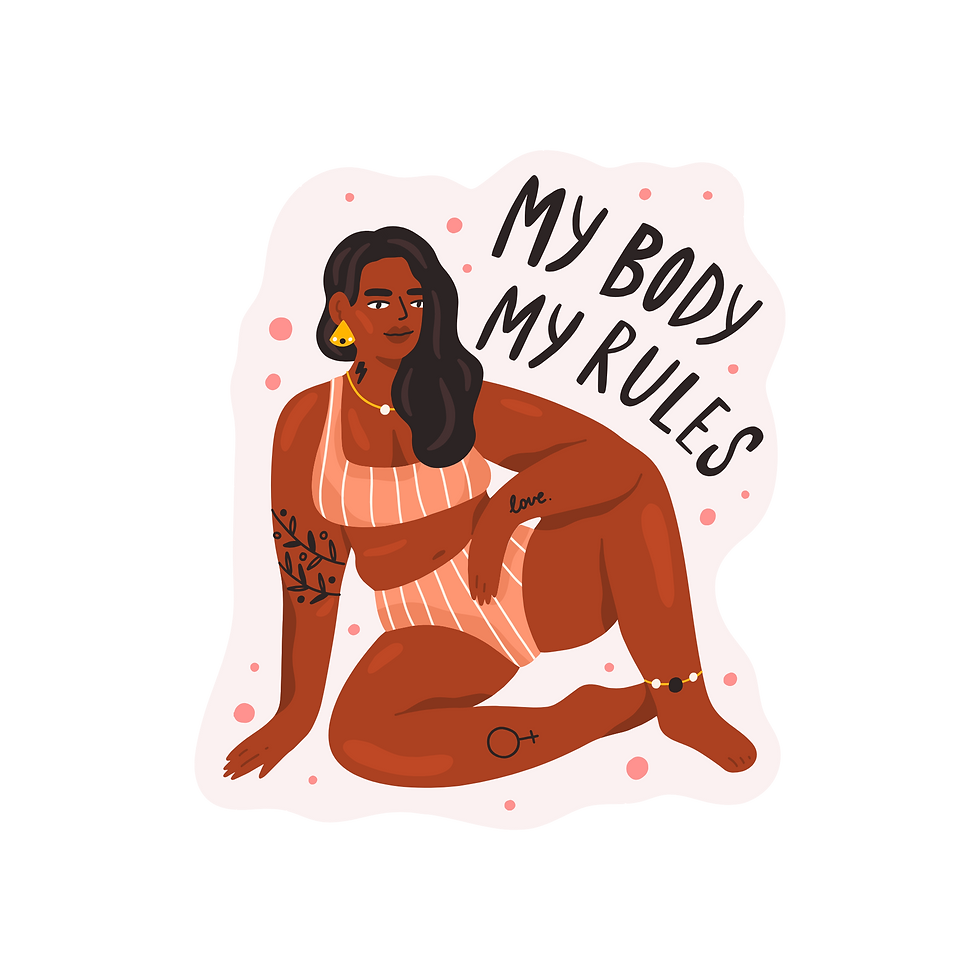Uncovering the Causes Behind Hypersexual Behaviour
- Georgia Crisp-Mills
- Jul 14, 2025
- 3 min read
Understanding the 'why' so we can begin to heal
At Wanted It Group, we believe that hypersexuality isn’t something to be ashamed of. It’s not a punchline. It’s not a diagnosis to be whispered about. It’s often a trauma response, a survival strategy, or a deeply misunderstood cry for connection, control, or safety.
So, what does cause hypersexuality? This blog looks at the different backgrounds and experiences
Before we dig into the causes of hypersexuality, let’s quickly define it:
Hypersexuality refers to frequent, intense sexual thoughts, urges, or behaviours that feel difficult to control and may cause distress or interfere with daily life. It’s often linked to trauma, though it can stem from a variety of factors – and it affects all genders and identities.
Hypersexuality isn’t just about “wanting sex all the time.” It’s about the why. That’s what we care about.

The Root Causes of Hypersexuality
There’s no single cause of hypersexuality. It’s usually a complex mix of experiences, emotions, and unmet needs. Here are some of the most common contributors:
1. Trauma (especially sexual trauma)
For many, hypersexuality begins as a response to trauma – particularly childhood sexual abuse, assault, or boundary violations. After trauma, people may become disconnected from their body, or overly fixated on sexual validation. Some survivors find that sexual activity becomes a coping mechanism: a way to numb, distract, reclaim control, or feel wanted (even if it doesn’t necessarily feel good).
💬 “I learned to perform instead of feel. Sex felt like the only way to be close to someone – even when I didn’t really want to do it.”
2. Neglect, abuse or attachment struggles in childhood
If your emotional needs weren’t met growing up – whether through neglect and abandonment, abuse or inconsistent caregiving – you might have developed a deep longing for intimacy, validation, or physical touch. Sometimes, hypersexuality becomes the only ‘language’ someone knows for getting those needs met.
3. Mental health conditions
Certain mental health diagnoses can impact sexual behaviour, including:
Bipolar disorder – during manic episodes, people may experience increased sexual energy and impulsivity.
Emotional Unstable Personality Disorder (EUPD) & Borderline Personality Disorder (BPD) – due to intense fears of abandonment, some people with EU&BPD may turn to sex as a way to feel loved or keep someone close.
PTSD & CPTSD – hypervigilance, emotional numbing, and trauma flashbacks can all affect how someone experiences sex or uses it to self-regulate.

4. Addiction, dopamine, and dysregulation
For some, hypersexual behaviour becomes addictive – a repeated pattern of chasing dopamine to escape pain, boredom, or stress. Sexual activity, porn, or compulsive flirting might offer a temporary high, but leave a crash of shame, emptiness, or regret.
It’s often about dysregulation. When your nervous system has been through hell, pleasure becomes a quick fix – even if it doesn’t truly feel good.
5. Sexual repression or shame
Sometimes, the causes of hypersexuality are actually rooted in repression. Growing up in a highly religious, conservative, or sex-negative environment can lead to secrecy, binge-purge cycles, or feelings of being “broken” when natural sexual desire is shamed.
In these cases, someone might swing between abstinence and oversexualisation – not knowing how to find a healthy middle ground.
6. Gender & sexuality struggles
Many LGBTQIA+ folks report hypersexuality during periods of identity confusion, internalised shame, or after being fetishised. When your body and identity are constantly politicised or policed, sex can feel like the only space to express power or authenticity – even if it’s not always safe or fulfilling.
So… What now?
Understanding the causes of hypersexuality is not about blame. It’s about compassion. It’s about recognising that your behaviour has roots – and that healing is possible.
You are not your urges. You are not broken.
You’re allowed to question your patterns without hating yourself for them. You’re allowed to want sex, or not want it. You’re allowed to change. And most of all, you’re allowed to be held while you figure it out.
Need support?
We’ve got you.
👉 Follow us on Instagram @wanteditgroup




Comments